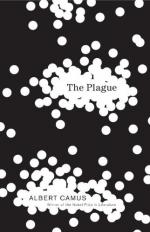|
This section contains 227 words (approx. 1 page at 400 words per page) |

|
The imagery of 1984 may feel as tired and unimaginative today as the stale metaphors against which Orwell inveighs in "Politics and the English Language," but it is this very familiarity that explains why these symbols endure. The vision of 1984, so startling half a century ago, has long since become ordinary, just as Freudian categories are taken-for-granted tools in our intellectual kitbag. Imagining a world without airbrushed history or a watchful eye, Big Brother or the computer data-bank is as hard as letting go of repression or sublimation. Fifty years on, 1984 lingers in the air. So too does The Plague, with its images of natural and insidious evil.
The idea that one might achieve utopia on earth, so tempting when these novels were published, has vanished except among the maddest of cults, a casualty of the many sins committed in the name of utopia. 1984 and The Plague urged...
|
This section contains 227 words (approx. 1 page at 400 words per page) |

|




